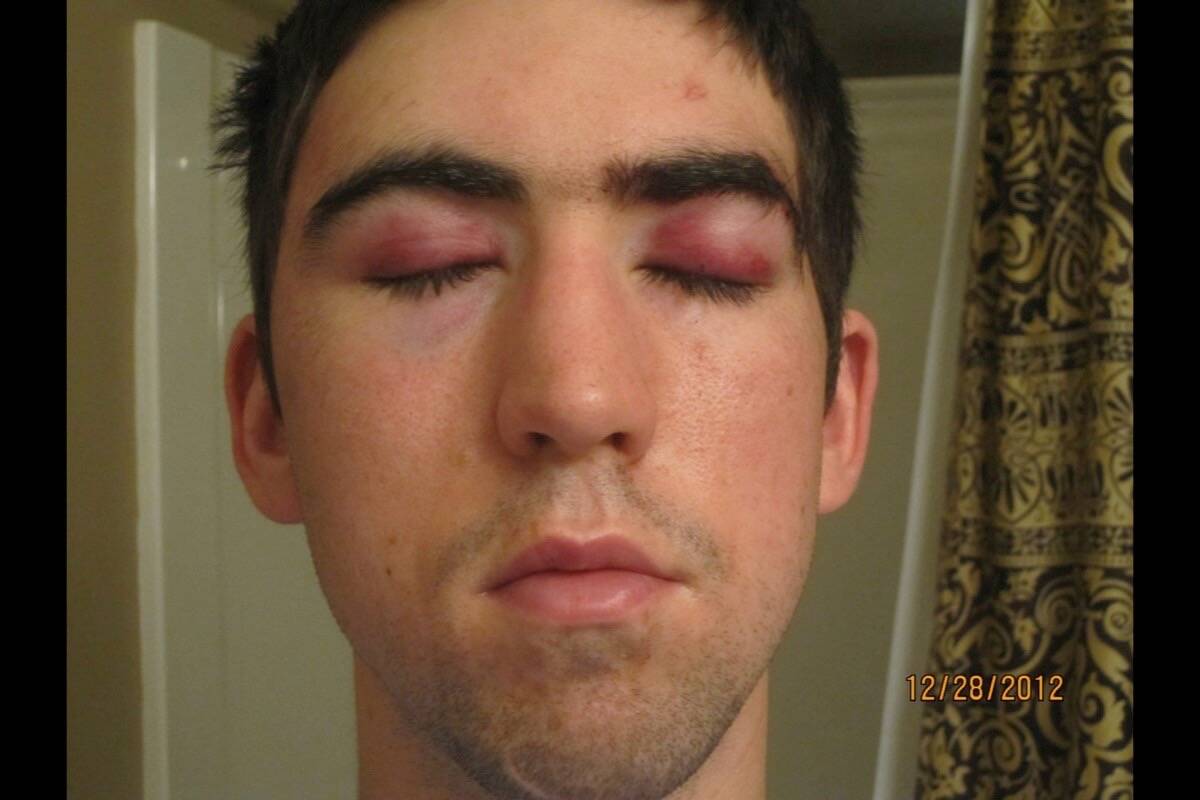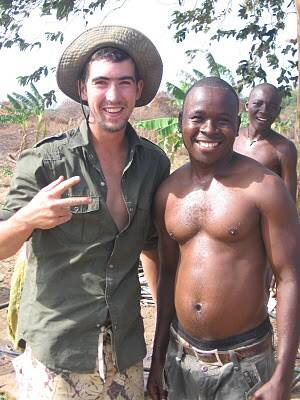Duncan’s Kyle Mockford is only now beginning to get his life back in some sort of order after a decade of dealing with a severe brain injury.
Mockford, 33, was leading a normal and productive life until an assault outside a Victoria nightclub in December, 2012, changed everything in his world.
He was healthy, happy, had a lot of friends and was deeply involved in the community before the attack.
As a high school student, Mockford was a regular at events held by the Cowichan Intercultural Society and after graduation, he fundraised to go to Africa and went there a number of times on extended trips to help build orphanages and assist people on the continent in any way he could.
But it was close to home where his life would be changed forever. He was with some friends at a nightclub in 2012 when he was brutally attacked from behind shortly after they left the establishment.
Mockford was struck up to 20 times in the head before collapsing unconscious to the ground.
The next thing he knew he was in a hospital with a severely swollen and bruised face going in and out of consciousness with extremely painful headaches, and he vomited constantly for several days.
Mockford said his doctor at the time didn’t fully understand brain injuries and their effects and prescribed pharmaceutical drugs for some time in an unsuccessful attempt to deal with his health issues, but then a nurse he was put in contact with referred him to a neurologist and arranged for him to have a CT scan.
After testing, Mockford found that the assault had left him with a subdural hematoma in his brain. This is when blood forms on the surface of the brain and presses against it, which can be a life-threatening condition.
He said, up until then, he was never connected to the proper medical support systems, and his life began to spiral out of control due to the lack of support he was receiving.
“After the assault (for which the attacker received little more than a slap on the wrist), I spent the next three months sleeping and recovering,” he said.
“I would rest in bed and was very sensitive to light and could not watch television or do anything. My life started to fall apart. I started to experience severe headaches, balance problems, fatigue, poor coordination, and reductions in my reasoning skills, concentration and memory.”
Mockford said he also began experiencing serious bouts of depression, anxiety, compulsive-aggressive behaviours and PTSD, all of which got progressively worse after the attack.
He said he had to drop out of university and lost his job, and his condition also severely impacted his relationships with family and friends.
“I began isolating myself and was in a rage at what was going on in my head and not understanding that I was dealing with a serious brain injury at the time,” he said.
“The doctor that I have now, who has been a great support, has since pointed out that, as a result of the injury, I am at a heightened risk for dementia, MS, ALS, and a stroke.”
Mockford said due to his struggles with his health, he has had trouble holding down a job and has worked at a number of random jobs to pay the bills.
He said little was known about how to help those suffering the impacts of brain injuries at the time of the assault compared to now, and he sees some hope in a private-member’s bill, Bill C-277, that was reintroduced in Ottawa last June by Cowichan-Malahat-Langford MP Alistair MacGregor.
If adopted, Bill C-277 would see the development of a national strategy to support and improve brain injury prevention and treatment in Canada.
“Canadians living with traumatic brain injury symptoms deserve equal access to the best available care and treatment, and Bill C-277 aims to do just that,” MacGregor said in June.
Mockford said he also found a beacon of hope and support in the Cowichan Brain Injury Society, whose members have been supportive and comforting as they try to help him deal with his condition.
He said over the last year and a half since he first contacted the society, its executive director Chris Rafuse has bent over backwards to steer him towards the resources he requires, and his counsellor and life coach at the society, Emma Knock, has been a mentor and advocate, and has connected him to social workers, attended workshops with him, and has helped him in any way she can.
Mockford said he has lived with his parents on and off for the past five years, but is now living in a one-bedroom apartment in downtown Duncan.
“I’m starting to get things together and I’m glad to finally have a doctor who is following through on my treatments,” he said.
“I expect I’ll never get back to being completely normal, but I’m finally doing the proper things to get back to normal as much as is possible after falling through the cracks for so long. I want to shine a light on how serious brain injuries can be, and that they can and will have long lasting consequences and effects on a person’s life.”
To assist with his own recovery and to help others suffering from brain injuries, Mockford has begun a website and blog, which can be found at www.dailytranscend.com, that deal with the aftermath of his brain injury and things others can do to help with their own healing.
READ MORE: Brain injury endemic among homeless populations: Vancouver research
READ MORE: Brain injury from abuse puts women at risk in court, B.C. researchers find
robert.barron@cowichanvalleycitizen.com
Like us on Facebook and follow us on Twitter


